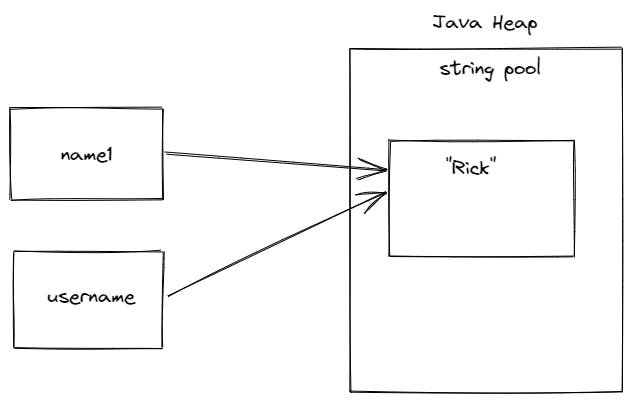Why Are Strings Immutable in Java? Safety And Security and Performance Advantages
What Is Immutable Strings and How It Works
In the world of shows, recognizing the principle of immutable strings is critical for creating safe and robust applications. Unalterable strings refer to strings that can not be changed after they are developed, guaranteeing data honesty and predictability within the code.
The Essentials of Immutable Strings
Unalterable strings, as a basic idea in shows, are personality sequences that can not be transformed as soon as they are developed. This indicates that as soon as a string is designated a worth, that value can not be modified. In languages like Python and Java, strings are unalterable items, bring about different implications in terms of memory management and data honesty.
One of the key benefits of immutable strings is that they offer a complacency in information adjustment. Because the web content of an immutable string can not be changed, it guarantees that the initial information continues to be intact, minimizing the threat of unintended adjustments during program execution (Why are strings immutable in Java?). This residential or commercial property also streamlines debugging procedures, as designers can rely on that once a string is specified, its worth will certainly not be unintentionally modified
Additionally, immutable strings assist in efficient memory use. When a brand-new string is created based upon an existing one, as opposed to changing the original string, the brand-new value is saved separately. This technique boosts performance by decreasing memory fragmentation and simplifying memory allocation processes. In general, recognizing the basics of immutable strings is critical for grasping shows concepts and enhancing code performance.
Benefits of Immutable Strings
Building upon the security and efficiency benefits of unalterable strings, their advantages encompass improving code integrity and streamlining simultaneous programming tasks. By being immutable, strings can not be customized after production, which eliminates the threat of unintentional modifications in the information they keep. This inherent immutability ensures that when a string is produced, its value stays consistent throughout the program's implementation, decreasing the opportunities of insects brought on by unanticipated modifications.
Additionally, immutable strings add to code integrity by making it less complicated to reason regarding the state of a program. Since strings can not be transformed, designers can trust that a string will constantly hold the very same value, streamlining debugging and upkeep efforts. This predictability brings about a lot more secure and reliable codebases.
Implementation in Programming Languages
Within numerous programs languages, the incorporation of link unalterable strings is navigate to this site a fundamental element that impacts just how data is dealt with and adjusted within code structures. The application of unalterable strings differs throughout different programs languages, with each language supplying its own devices to support this principle.

In contrast, languages like C and C++ do not have integrated assistance for immutable strings. Programmers in these languages have to by hand execute immutability by imposing rules within their code to stop direct adjustments to string items.
Best Practices for Dealing With Unalterable Strings
When managing unalterable strings in programs languages like Java and Python, adhering to best practices makes certain secure and effective data control. Among the vital best methods is to make use of StringBuilder or StringBuffer as opposed to straight adjusting strings, especially when dealing with comprehensive concatenation operations. These classes give mutable choices for string control, aiding to stay clear of unnecessary memory allowances and enhancing efficiency.
In addition, when functioning with sensitive data such as passwords or API tricks, it is essential to prevent storing them as simple message in immutable strings. Using secure storage systems like char arrays or specialized collections for dealing with sensitive details helps reduce security risks connected with immutable strings.
Real-world Applications and Instances
Checking out useful executions of immutable strings in various sectors discloses their significant influence on data stability and system integrity. In the health care field, immutable strings play an essential duty in making sure the protection and discretion of person information. By protecting against unapproved adjustments to sensitive details such as medical records and prescriptions, unalterable strings aid preserve compliance with stringent personal privacy regulations like HIPAA.
Banks also take advantage of the unalterable nature of strings to boost the protection of consumer information and Click This Link deal documents. Unalterable strings assist stop scams and unauthorized alterations to financial details, offering a durable defense versus cyber threats and making certain the count on and confidence of clients.

Conclusion
In final thought, immutable strings are taken care of and unchangeable series of personalities that provide benefits such as thread safety and security and enhanced efficiency in shows. They are carried out in different shows languages to make sure data honesty and safety. Best techniques for functioning with immutable strings consist of preventing straight modifications and using methods that return new string objects. Real-world applications of immutable strings consist of information file encryption, caching, and string adjustment tasks.
Immutable strings refer to strings that can not be altered after they are created, guaranteeing data stability and predictability within the code. When a new string is created based on an existing one, instead than changing the original string, the brand-new value is stored individually.In languages like Java and Python, strings are unalterable by default, meaning that once a string item is created, its worth can not be transformed - Why are strings immutable in Java?. Ideal techniques for functioning with unalterable strings include preventing straight alterations and utilizing methods that return new string things. Real-world applications of immutable strings include data file encryption, caching, and string control jobs